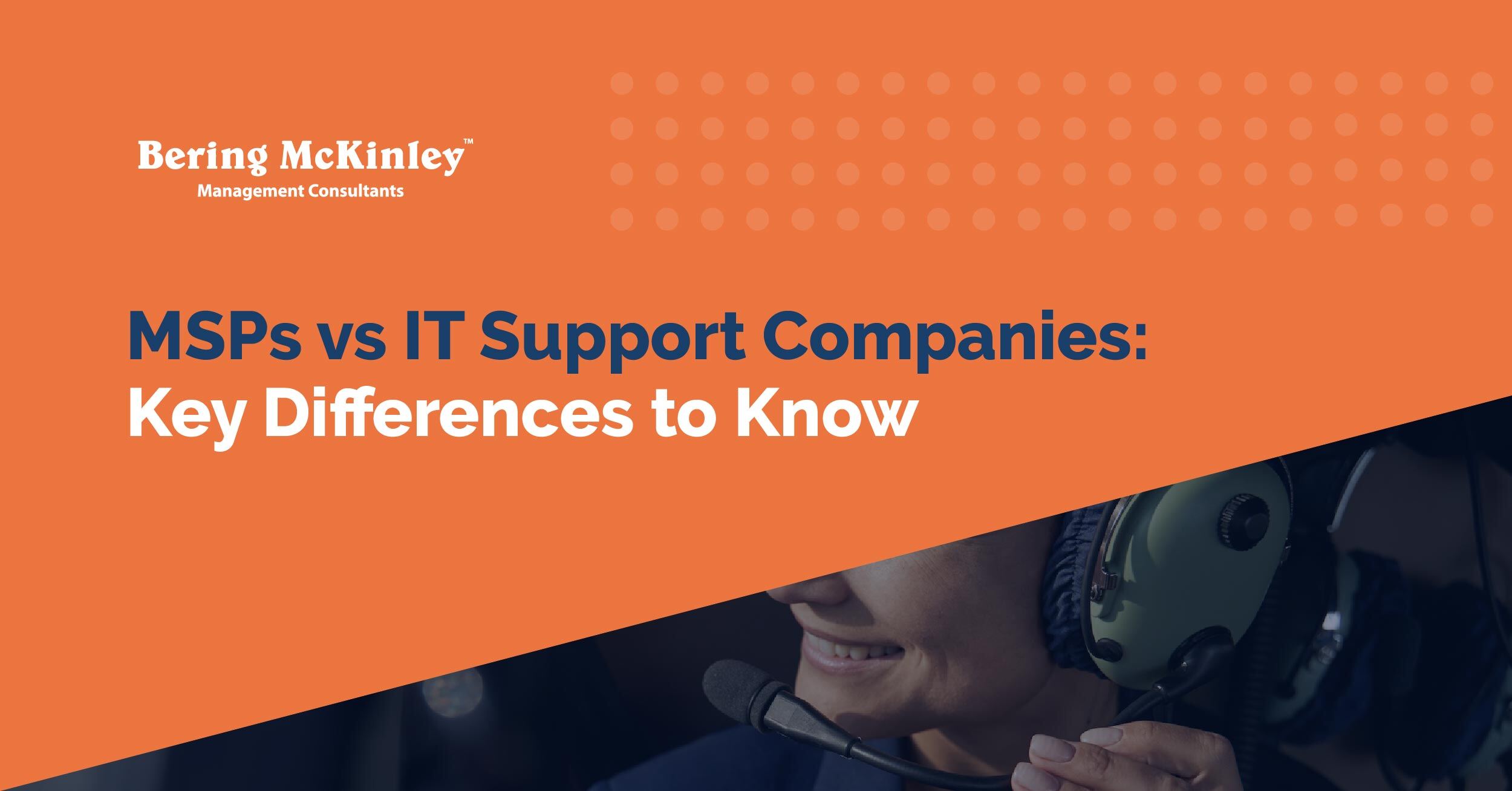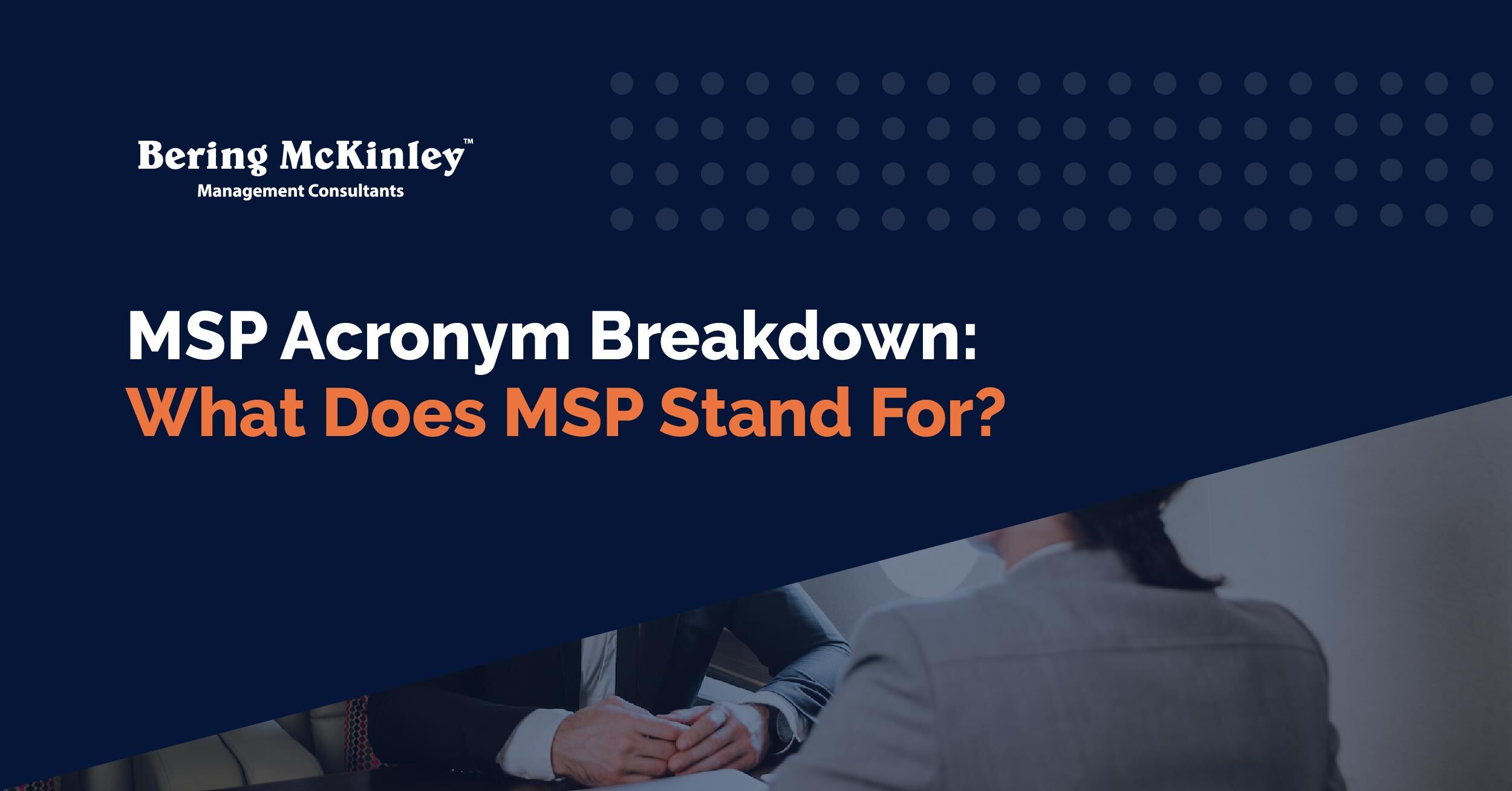MSP Acronym Breakdown: What Does MSP Stand for in Different Industries
Managed Service Providers (MSPs) have become a critical component in today's business world, enabling companies to stay efficient, scalable, and...
3 min read
 Josh Peterson
:
Updated on July 18, 2025
Josh Peterson
:
Updated on July 18, 2025

Many businesses find themselves asking the same question when it comes to IT services: What’s the difference between a Managed Service Provider (MSP) and an IT support company? While the two might seem similar at first glance, they operate on different models and offer varying value for businesses, particularly when it comes to efficiency, strategy, and long-term partnership.
This guide dives into the evolving MSP landscape to provide clarity and insight for business owners, IT decision-makers, and small businesses. With a deeper understanding, you can make informed choices on how to run or outsource your IT operations effectively.
Partnering with a local MSP provides businesses with quicker response times, stronger relationships, and a better understanding of your unique business environment. A local MSP is more likely to offer tailored, on-site support and align with local regulations, ensuring that you get the best service possible.
Key Benefits:
Learn more: The Local Perks of Choosing a Nearby MSP
Cybersecurity threats are rising, and businesses must adopt stringent security measures. MSPs are integral in implementing zero-trust models, which verify every user and device attempting to access network resources, ensuring maximum security.
How MSPs Help with Zero-Trust:
Learn more: How MSPs Enhance Zero-Trust Security for Businesses
For small businesses, every minute of downtime equals a loss in productivity and revenue. MSPs offering 24/7 support ensure continuous IT operations, and that translates to improved uptime and peace of mind for business owners.
Key Reasons to Invest in Round-the-Clock MSP Support:
Learn more: Benefits of Choosing a 24/7 MSP Support Service
Artificial intelligence is revolutionizing managed services. MSPs leveraging machine learning algorithms can proactively identify and address IT issues before they become problems, saving businesses time and money.
AI Applications in MSPs:
Learn more: How AI and MSPs Are Shaping Business Tech
Satisfied customers aren’t just good for business; they’re essential for long-term success in the competitive MSP space. Tools like CSAT (Customer Satisfaction Score) and NPS (Net Promoter Score) help MSPs gauge client satisfaction and improve services.
What MSPs Can Do to Keep Customers Happy:
Learn more: Why Customer Satisfaction is Key for MSPs
The evolving legal and regulatory environment can significantly impact MSPs. Understanding compliance requirements is essential for service providers and their clients to operate effectively and avoid legal risks.
Why This Matters:
Learn more: Regulatory Legislation and its Impact on MSPs
It might be tempting to choose an MSP based solely on cost, but businesses benefit more from long-term partnerships built on trust, expertise, and shared goals.
Key Things to Look For in an MSP:
Learn more: What Makes a Great Long-Term MSP Partner?
Cyberattacks are growing more sophisticated, and MSPs must adopt robust cybersecurity best practices to protect their clients.
Best Practices Include:
Learn more: MSP Cybersecurity Best Practices in 2025
MSPs stop problems before they happen. They do this by monitoring systems in real time, performing automated maintenance, applying patches regularly, and planning infrastructure for the long term.

Managed Service Providers (MSPs) have become a critical component in today's business world, enabling companies to stay efficient, scalable, and...
.jpg)
Businesses cannot afford downtime or inefficiencies in their IT operations.
Projects are critical to MSP’s overall revenue mix. A solid revenue mix for a modern and healthy MSP is... (drum roll):